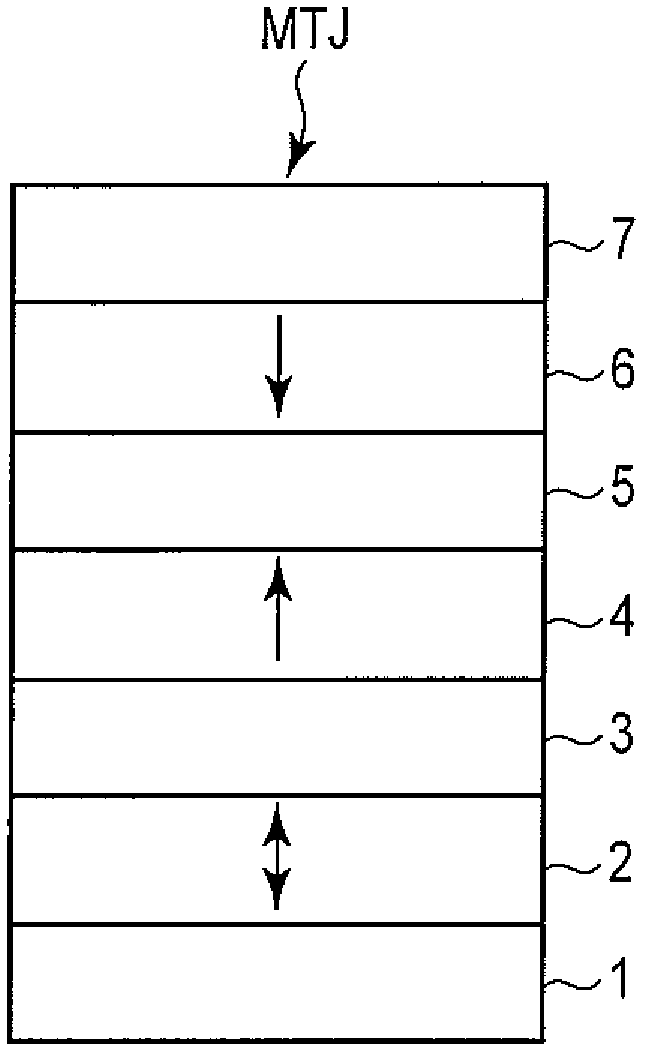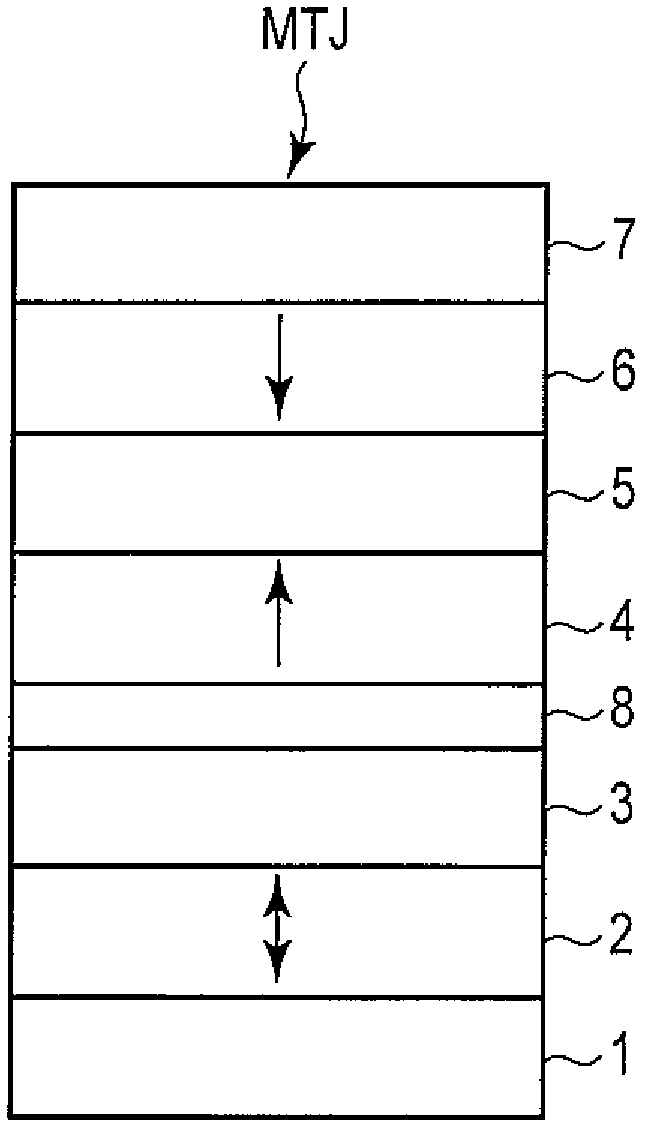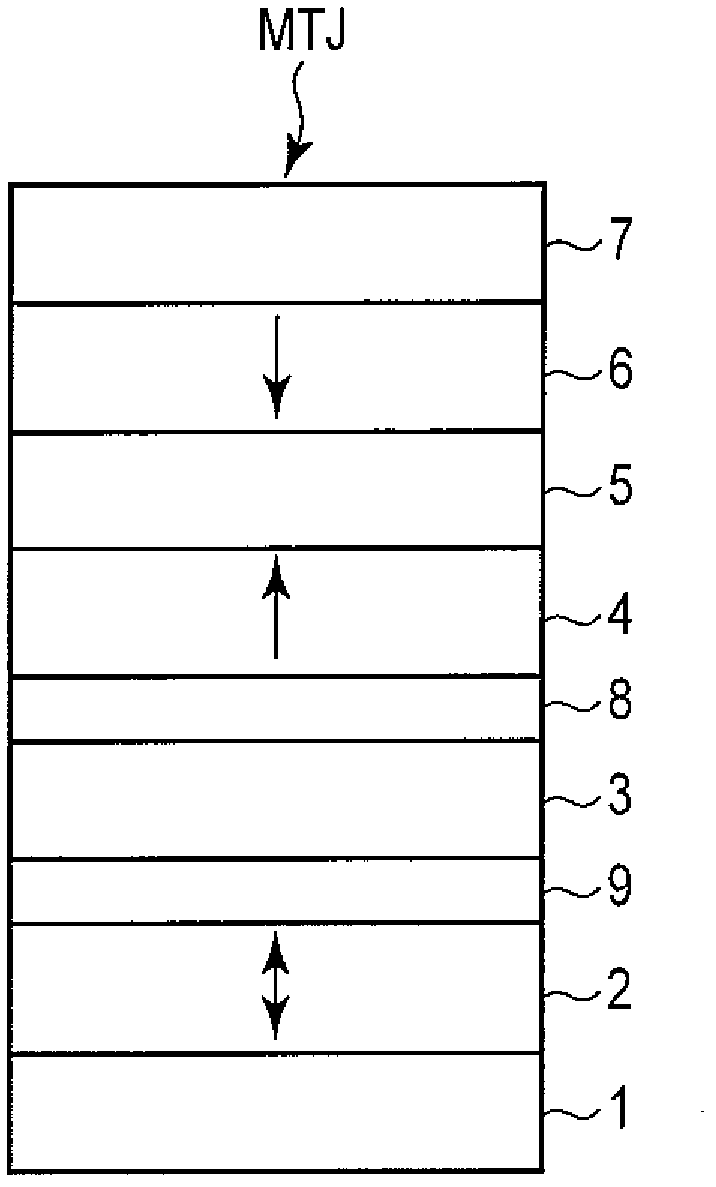Magnetoresistive element and magnetic memory
A technology of magnetoresistive elements and components, applied in static memory, digital memory information, magnetic field controlled resistors, etc., can solve problems such as difficult storage layers, offset, return to the original state, etc.
Active Publication Date: 2013-01-02
KIOXIA CORP +1
View PDF4 Cites 14 Cited by
- Summary
- Abstract
- Description
- Claims
- Application Information
AI Technical Summary
Problems solved by technology
[0005] In addition, as a problem inherent in the magnetoresistive element, there is a problem that the hysteresis curve of the storage layer is affected by the magnetic field (stray magnetic field) caused by the magnetization of the reference layer from the curve when t
Method used
the structure of the environmentally friendly knitted fabric provided by the present invention; figure 2 Flow chart of the yarn wrapping machine for environmentally friendly knitted fabrics and storage devices; image 3 Is the parameter map of the yarn covering machine
View moreImage
Smart Image Click on the blue labels to locate them in the text.
Smart ImageViewing Examples
Examples
Experimental program
Comparison scheme
Effect test
 Login to View More
Login to View More PUM
 Login to View More
Login to View More Abstract
According to one embodiment, a magnetoresistive element includes a storage layer having a perpendicular and variable magnetization, a reference layer having a perpendicular and invariable magnetization, a shift adjustment layer having a perpendicular and invariable magnetization in a direction opposite to a magnetization of the reference layer, a first nonmagnetic layer between the storage layer and the reference layer, and a second nonmagnetic layer between the reference layer and the shift adjustment layer. A switching magnetic field of the reference layer is equal to or smaller than a switching magnetic field of the storage layer, and a magnetic relaxation constant of the reference layer is larger than a magnetic relaxation constant of the storage layer.
Description
[0001] Cross References to Related Applications [0002] This application is based on and claims priority from prior Japanese Patent Application No. 2011-146718 filed on Jun. 30, 2011, the entire contents of which are hereby incorporated by reference. technical field [0003] Embodiments described herein relate generally to magnetoresistive elements and magnetic memories. Background technique [0004] A magnetoresistive element has as a basic structure a laminated structure including a magnetic layer (reference layer) with constant magnetization, a magnetic layer (storage layer) with variable magnetization, and a nonmagnetic layer between these two magnetic layers, and is LSI for memory cells of magnetic random access memory or spin field effect transistors (FETs) for reconfigurable logic circuits, etc. In this case, the magnetoresistive element is patterned in a columnar shape. [0005] In addition, as a problem inherent in the magnetoresistive element, there is a problem...
Claims
the structure of the environmentally friendly knitted fabric provided by the present invention; figure 2 Flow chart of the yarn wrapping machine for environmentally friendly knitted fabrics and storage devices; image 3 Is the parameter map of the yarn covering machine
Login to View More Application Information
Patent Timeline
 Login to View More
Login to View More IPC IPC(8): H01L43/08G11C11/16
CPCH01L43/08G11C11/16H01L27/228G11C11/161G11C11/1675H10B61/22H10N50/10
Inventor 西山胜哉相川尚德甲斐正永濑俊彦上田公二与田博明
Owner KIOXIA CORP
Features
- R&D
- Intellectual Property
- Life Sciences
- Materials
- Tech Scout
Why Patsnap Eureka
- Unparalleled Data Quality
- Higher Quality Content
- 60% Fewer Hallucinations
Social media
Patsnap Eureka Blog
Learn More Browse by: Latest US Patents, China's latest patents, Technical Efficacy Thesaurus, Application Domain, Technology Topic, Popular Technical Reports.
© 2025 PatSnap. All rights reserved.Legal|Privacy policy|Modern Slavery Act Transparency Statement|Sitemap|About US| Contact US: help@patsnap.com



